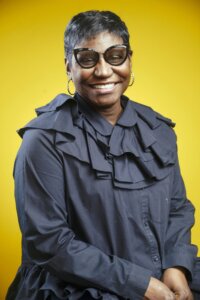
Jaletha Smith
Early childhood is a period of rapid brain development that paves the way for growth of self-regulation.
Self-regulation has a foundational role in promoting wellbeing across the lifespan, including physical, emotional, social, and economic health and educational achievement.
Self-regulation can be defined as the act of managing thoughts and feelings to enable goal-directed actions. This means, for instance, finding ways to cope with strong feelings so they don’t become overwhelming; learning to focus and shift attention; and successfully controlling behaviors required to get along with others and work towards goals.
Supporting self-regulation development in early childhood is an investment in later success because stronger self-regulation predicts better performance in school, better relationships with others, and fewer behavioral difficulties. Moreover, the ability to regulate thoughts, feelings, and actions helps children successfully negotiate many of the challenges they face.
How does Self-Regulation develop?
Multiple factors contribute to self-regulation, from biological predisposition to teacher support and environmental context. While biology sets the stage for self-regulation readiness, more complex skills and motivation for self-regulation develop through interaction with teachers and the broader environment over an extended period. Children learning self-regulation skills need structured environments, supportive relationships, and direct instruction and coaching in the progression of self-regulation skills.
Why is Self-Regulation important?
As your child grows, self-regulation helps them:
- learn at school – because self-regulation gives your child the ability to sit and listen in the classroom.
- behave in socially acceptable ways – because self-regulation gives your child the ability to control impulses.
- make friends – because self-regulation gives your child the ability to take turns in games and conversation, share toys, and express emotions in appropriate ways.
- become more independent – because self-regulation gives your child the ability to make appropriate decisions about behavior and learn how to behave in new situations with less guidance from you.
Positive Emotional Development and Learning and Self-Regulation
There are several Social Emotional learning models and curriculums that are available, and they address some or all components of self-regulation development. The social emotional model and curriculum that I currently use as an Early Childhood social emotional coach is PEDALS and Second Step.
PEDALS was designed to improve social and emotional skills of preschool children in early childhood classrooms by identifying and using evidence-based practices and materials. Developers created five components that together make up the PEDALS program that includes:
- Social Emotional Curriculum
- In class coaching by early childhood experts
- Identification of needs and providing supports
- Program improvement and sustainability planning
- Data for improvement and evaluation
PEDALS works with early childhood teachers and programs to build children’s social emotional skills and identify social emotional needs, make accommodations, and ensure that children and their families are connected to appropriate supports. PEDALS includes implementation of an evidence-based social emotional curriculum (Second Step) plus classroom coaching by early childhood experts for teachers and staff and ongoing evaluation.
Results from PEDALS show 100% of early childhood programs said that the model fits the needs of teachers and children, satisfied with curriculum and coaching, improvement in social emotional development, and there was a 75% decrease in the number of PEDALS children who scored in the “Needs” range for social emotional development as measured by DECA social emotional assessment.
Summary
Self-regulation plays a fundamental role in wellbeing and the first five years of life are foundational in building skills that can last a lifetime. Comprehensive interventions and environmental support using a self-regulation framework can produce broad, substantive changes in both child self-regulation and teacher co-regulation skills. Applied systematically and proactively, this self-regulation support can promote a solid foundation in skills needed for social, emotional, behavioral, and academic success during the school years.
REFERENCES

